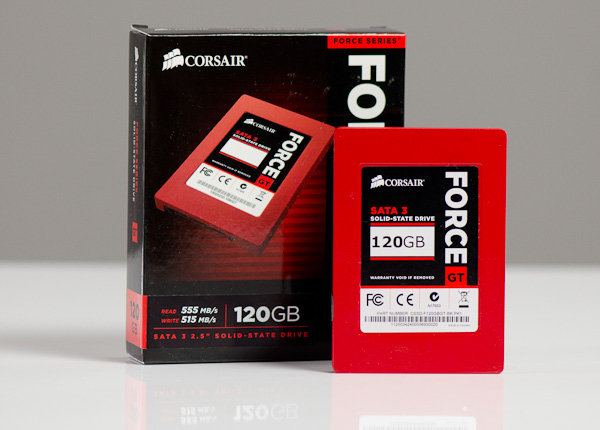The SandForce Roundup: Corsair, Kingston, Patriot, OCZ, OWC & MemoRight SSDs Compared
by Anand Lal Shimpi on August 11, 2011 12:01 AM ESTFinal Words
There really shouldn't be any surprises here. Given the same controller, the same NAND and the same firmware there's no difference between SandForce SSDs. They may look different and they may be priced differently, but they are effectively the same. So how do you pick between otherwise identical drives?
Firmware availability is an important feature. OCZ's exclusive arrangement with SandForce still gives it the advantage here. No competing SandForce drive gets firmware updates as quickly as OCZ owners. That's not always a good thing however. In the interest of pushing out fixes and improvements as quickly as possible you don't just get good firmware updates, sometimes you get updates that are best skipped. If you're the type of user that wants the latest updates as quickly as possible, OCZ is your only option.
For everyone else it looks like all of the competing drives are at least running with fairly up to date firmware revisions (either the absolute latest or one revision older than the latest). However it's unclear what the update cadence will be like going forward for these guys. The hope is that you won't need to update the firmware on your drive after you buy it, but it's clear at this point that there's still some room for compatibility improvements in the latest SandForce firmware.
The BSOD issue continues to be a significant blemish on SandForce's trackrecord. I don't have nearly enough systems deployed with SF-2281 hardware to really make any accurate statements of how widespread the issue is, but even if it is limited - it's a problem that should not exist. SandForce based drives continue to offer the best performance out of anything on the market today, not just in peak performance but in performance over time. For systems without TRIM support (e.g. Macs without the TRIM enabler) the hallmark SandForce resiliency is even more important. Unfortunately the unresolved BSOD issue makes all of these drives a risk if you don't know for sure that your system won't be affected.
The safest route without sacrificing significant performance continues to be Intel's SSD 510.











90 Comments
View All Comments
secretanchitman - Thursday, August 11, 2011 - link
Thanks for the great review Anand! I'm rocking a Patriot Wildfire 240GB in my 2011 15" mbp (2.2ghz, 8GB, 6750m 1GB, 1680x1050 anti-glare) and it's been 100% perfect. I haven't seen any errors whatsoever in snow leopard, lion, and windows 7 via boot camp.These benchmarks are pretty consistent with what I see on my own drive, although the 240GB is a bit higher all around. :)
Movieman420 - Thursday, August 11, 2011 - link
Here is a good summary of the issue to date:From Ocz:
'...I think the ultimate fix will come with a FW coupled with Orom change and new RST/IME driver and possibly UEFI update for the motherboards, the issue needs to be nailed down, at this time its floating around with Orom changes etc and what ever SF do can be countered by what the Orom is doing...and yes SF are talking to Intel so i would hope between them they can get it worked out....
Full Post:
http://www.ocztechnologyforum.com/forum/showthread...
Nickel020 - Thursday, August 11, 2011 - link
Was gonna post this as well as the likely cause for the problems with the Asus board.Then again, if the Intel H67 is your testbed Anand, have you even updated the BIOS or are you staying with an older one for comparability? With an older BIOS it might have an older OROM as well and thus the issue could then not be solely caused by the OROM.
xijox - Thursday, August 11, 2011 - link
Thank you for another great write-up, Anand!I'm curious why you left the Corsair out of several of the benchmark results (4KB Random Read, 128KB Sequential Read and Write)?
beginner99 - Thursday, August 11, 2011 - link
maybe because it preformed worse than expected and the site got a little bribe from Corsair not to publish but instead put a nice commercial on the last page?philosofool - Thursday, August 11, 2011 - link
Don't be a jerk. If you're going to accuse someone of something like this, have some evidence.Anand Lal Shimpi - Thursday, August 11, 2011 - link
Or because I accidentally put the wrong graphs in the piece :) It has been fixed.Take care,
Anand
Beenthere - Thursday, August 11, 2011 - link
Sorry but the current SSDs are unreliable at this point in time and it's unscrupulous to continue selling these SSDs when a mfg. doesn't know the root cause, have a resolution for the operational/compatibility issues and can not tell consumers what systems can use these SSDs without issue.It's good to see Anandtech substantiate what I have been saying for some time. Now consumers need to stop purchasing these SSDs until they are properly revised so they function without issues for everyone.
gevorg - Thursday, August 11, 2011 - link
SSDs offer amazing performance, but too many of them are cursed with reliability problems. A is faster than B at price point C is not sufficient to make buying decisions with SSDs. When and how can benchmarks examine SSD quality issues?Axonn - Thursday, August 11, 2011 - link
Why is the Corsair Force 3 in only 1 of the benchmarks @ Random/sequential speed? And I can't see the Corsair GT anywhere on the first page?